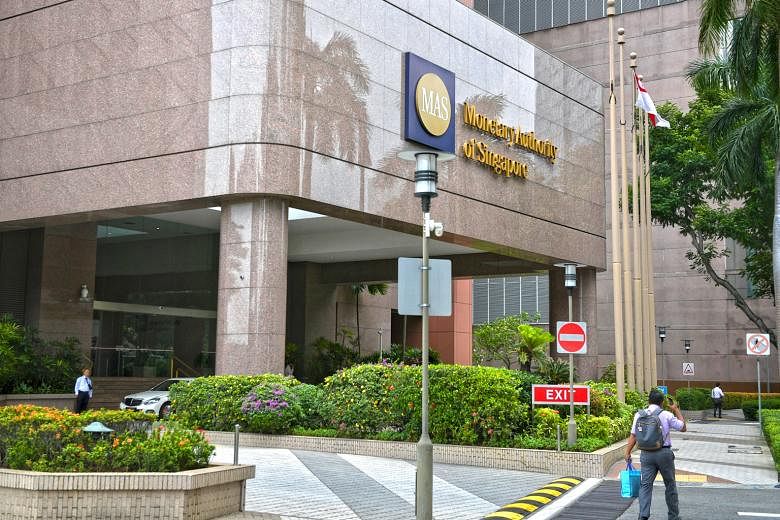Singapore and European firms could still be able to use derivatives platforms in either market to trade in products such as interest rate and credit default derivatives despite ongoing global reforms.
The Monetary Authority of Singapore (MAS) and its European Union counterpart are joining forces on a common approach that will let trading venues on both sides support derivatives reforms by the Group of 20 (G-20) bloc.
The move was billed as part of an effort to deepen economic ties between Singapore and the EU, add liquidity to previously fragmented markets, and help businesses better hedge currency risks.
The trading obligation - which requires over-the-counter derivatives to change hands in regulated markets - will cover interest rate swaps in currencies such as the greenback, euro and pound.
The MAS said in February last year that it planned to require the trading of over-the-counter derivatives on organised markets, completing its implementation of G-20 derivatives reforms. The EU is a G-20 member, but Singapore is not.
The MAS also said at the time that it would seek equivalence determinations from the United States and EU for exchanges and other centralised trading facilities here.
Now, in a quid pro quo arrangement, the Singapore central bank wants to exempt EU multilateral trading facilities and organised trading facilities from having to be approved exchanges or recognised market operators under the Securities and Futures Act.
But the planned mutual recognition will not take place overnight.
The EU member-state authorities must first vote in favour of the draft decision in the European Securities Committee, before an equivalence determination recognises approved Singapore-based markets as eligible platforms.
The list of eligible trading venues on both sides could be tweaked, based on market changes, the MAS and European Commission (EC) said in a joint statement yesterday.
Mr Valdis Dombrovskis, who heads the EU's Financial Stability, Financial Services and Capital Markets Union, said: "European firms will be able to continue trading interest rate and credit default derivatives on Singapore's platforms, and engaging with local counterparts in Asia. Singaporean firms will also be able to use EU platforms."
Deputy Prime Minister Tharman Shanmugaratnam, who is also MAS chairman, added in the statement: "With the mutual recognition of each other's trading platforms, EU and Singapore businesses will be able to hedge risks across our derivatives markets more efficiently."
The derivatives decision comes a week after the European Parliament agreed to a free trade deal and an investment protection agreement with Singapore. The trade deal will likely take effect this year.

